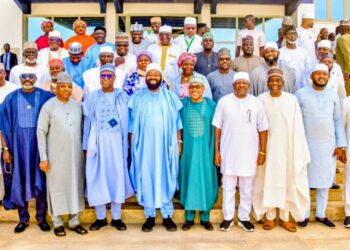Niger State Government Unveils AI-Driven Initiatives for Agricultural and Health Sectors at UN General Assembly.
By Yahaya Zakka Minna.
Niger State Governor Mohammed Umaru Bago has announced ambitious plans to leverage Artificial Intelligence (AI) technology to enhance the agricultural and health sectors, in alignment with global best practices.
This announcement was made during the Niger State Government’s side event at the 80th session of the United Nations General Assembly in New York, USA.
Governor Bago, often referred to as the “farmer governor,” emphasized his administration’s commitment to attracting more investors to Niger State, with the goal of significantly improving the living conditions of its citizens.
He stressed the importance of collaboration with development partners to reshape Nigeria’s narrative.
To achieve food sufficiency, the governor detailed strategic plans to utilize technology in agriculture. Over the next two years, the state aims to clear 2.5 million hectares of land for crop production and engage in contract farming with individuals in the diaspora, inviting foreign investment into the state.
In addition to agriculture, Governor Bago reiterated his commitment to transforming the health sector. His administration envisions the deployment of AI technologies alongside telemedicine services across all Primary Healthcare Centers in Niger State.
This initiative aims to extend effective healthcare access to remote areas, ensuring that more citizens benefit from essential health services.
Reinforcing the Governor’s vision, remarks from prominent attendees, including Zainab Ahmed, Group Executive Director at the World Bank, and Muhammad Sani Dattijo, Deputy Governor of the Central Bank of Nigeria, highlighted their support for the Farmer Governor’s transformative agenda. They assured continued backing for his initiatives, particularly those focused on agricultural reform.
The Niger State Government’s side event at the UN General Assembly, themed “Bridging the Gap: Subnational Development, Human Capital and Agricultural Transformation,” also addressed the challenges and opportunities faced in these sectors.
















